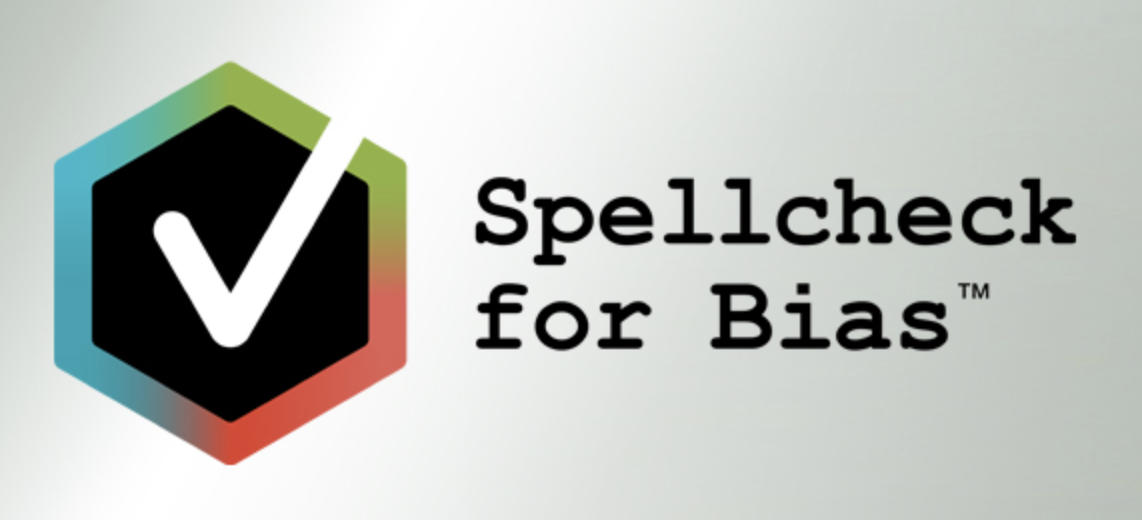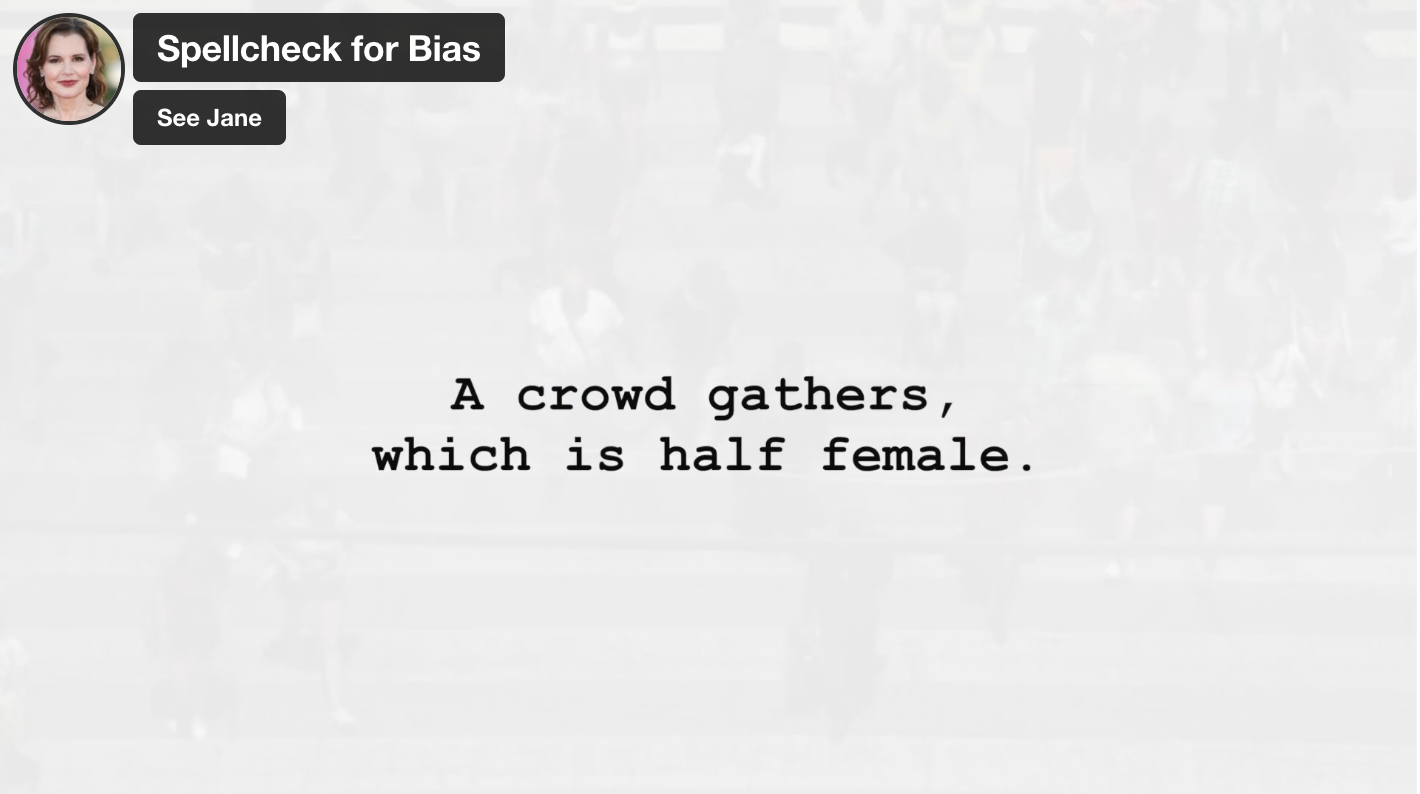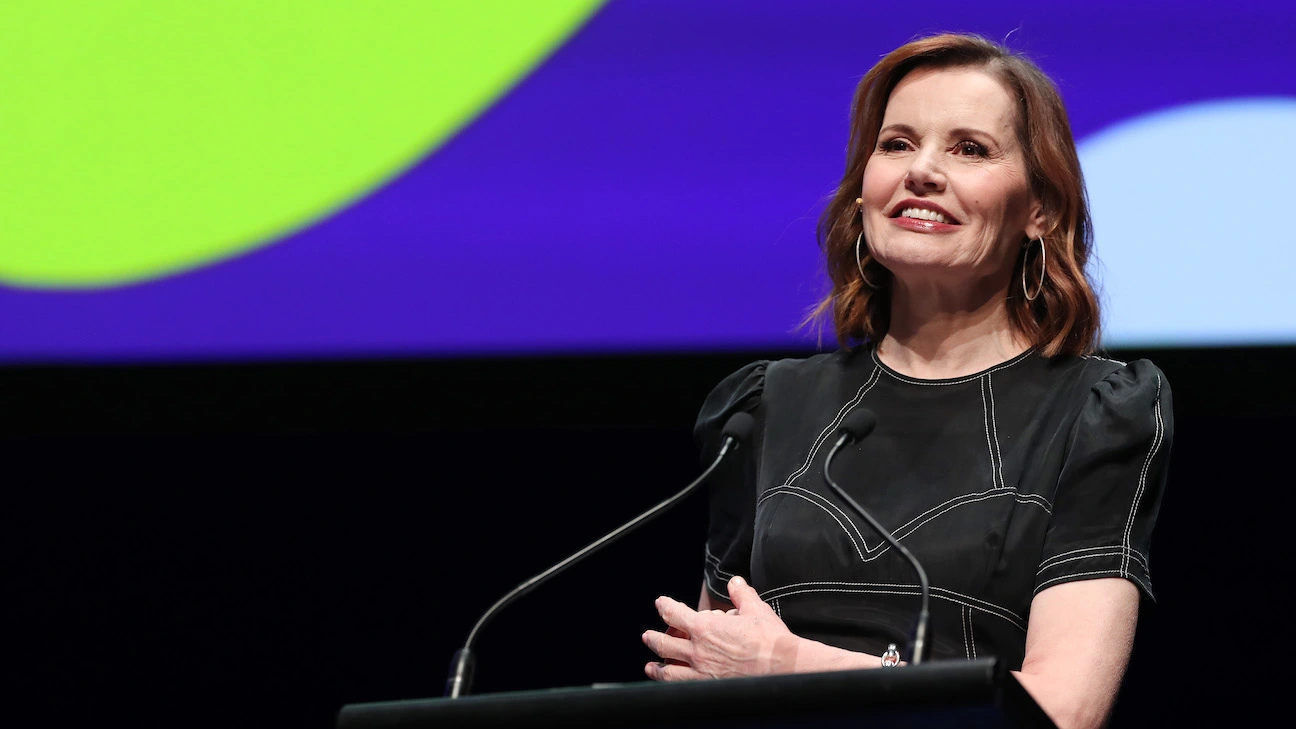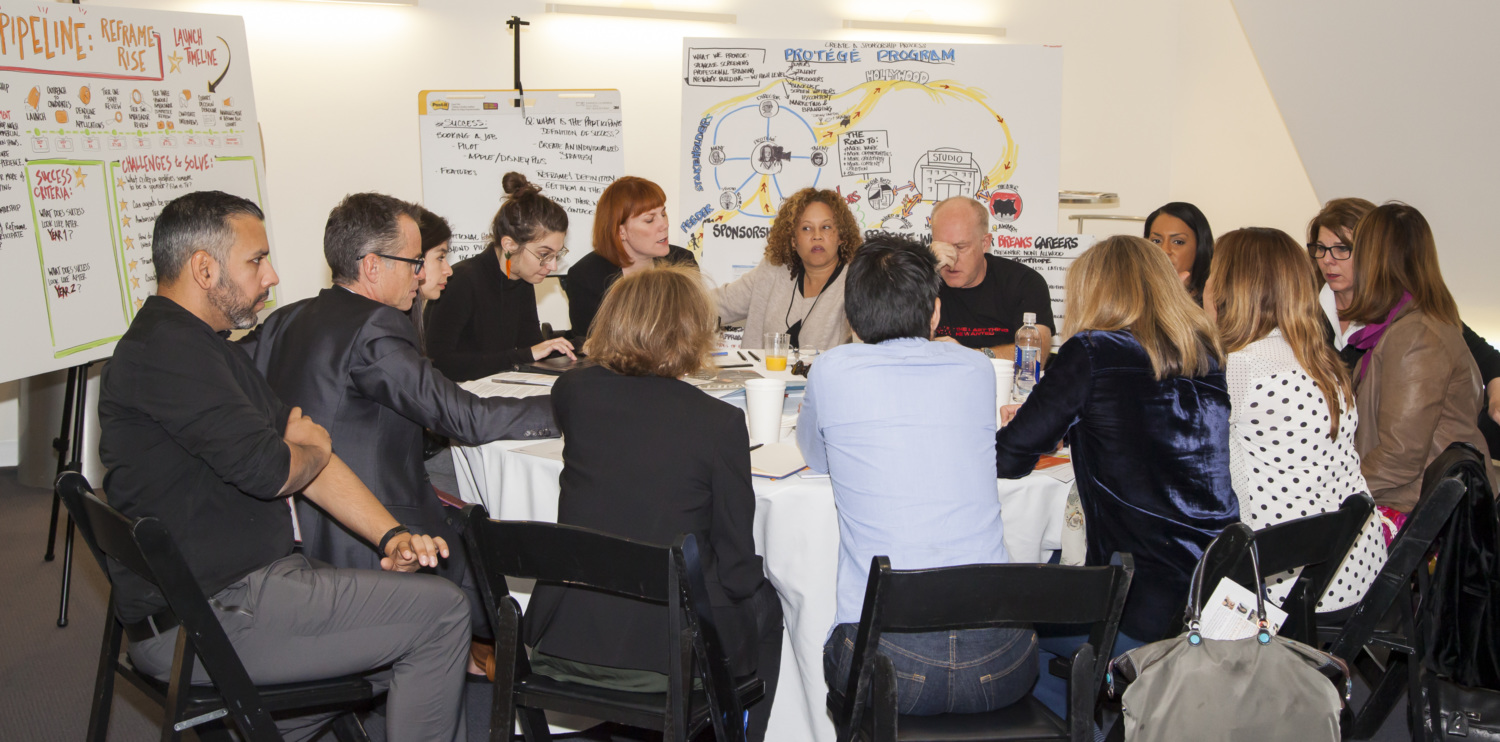Spellcheck for Bias
Spellcheck for Bias, a collaboration between the Geena Davis Institute and the University of Southern California’s Signal Analysis and Interpretation Laboratory (SAIL), analyzes film and television scripts, manuscripts, and advertising briefs to create a breakdown of characters and dialogue. Beyond software-based script analysis process, Spellcheck for Bias also incorporates the Institute’s Human Expert Coding to determine the representation of six identities: gender, race/ethnicity, LGBTQIA+, disability, age 50+, and body type. In addition, Spellcheck for Bias provides an analysis of Tropes and Stereotypes and such attributes as racial injustice violence, discrimination and intelligence.
(via seejane.org)

The goal is not to “shame and blame” screen creators, but rather to reveal the unconscious bias that commonly manifests in even the most well-meaning screenwriter’s work. With the data in hand, informed adjustments can be made to scripts so that they don’t perpetuate stereotypes and their pernicious real-world effects.

The Spellcheck for Bias tool also can measure percentage of dialogue by demographic identity as well as pick up on characteristics such as violence, discrimination and intelligence.
Geena Davis Institute has launched partnerships with Disney, NBCUniversal, and other high profile companies to develop pilot programs analyzing scripts on representation of Black, AAPI, and Latino characters, in addition to their work on gendered representation.
Learn MoreBy using Spellcheck for Bias to flag stereotypes, tropes and casting opportunities pertaining to Latino characters, NBCU was able to make adjustments to 20 percent of the scripts it tested during tool’s pilot phase over the past year. The tool was fed almost 20 film and television scripts in active development across the company, including Universal Pictures, Focus Features, Universal TV and Telemundo, to assess and strengthen research criteria that was developed by a team of advisors.
What if a film’s potential for onscreen diversity, equity, and inclusion could be identified where every film or television show begins: the script! To learn more about how Spellcheck for Bias can help support your work onscreen, please contact gdigm@seejane.org.
Read More
More resources for Development
Evaluating Material
Testing 1,2,3

Evaluating Material
Unconscious Bias Training for Development Teams

Evaluating Material from Survivors
Evaluating Material
Evaluating Material
“Surviving” to Thriving: Muslim Women On-Screen Test
